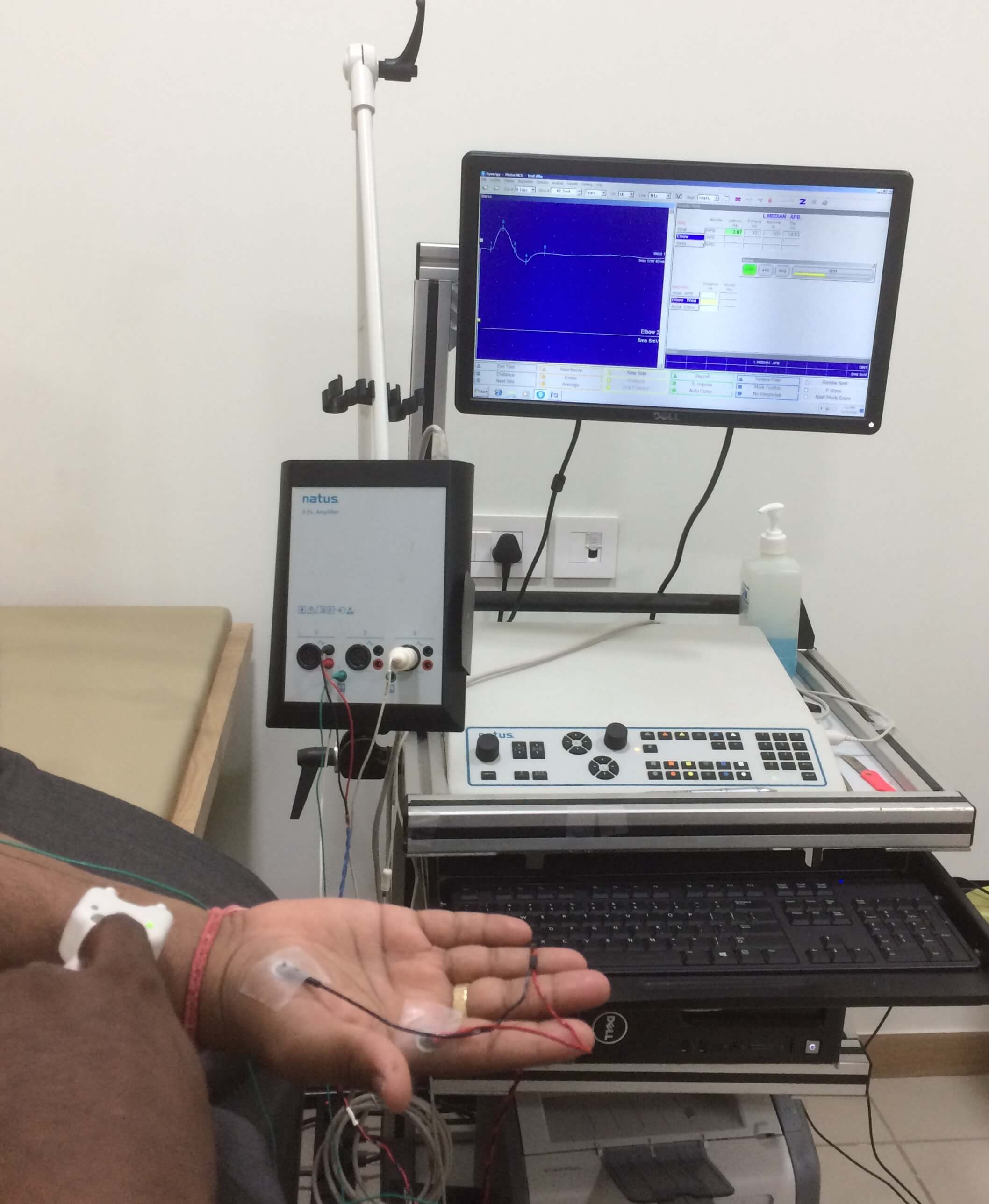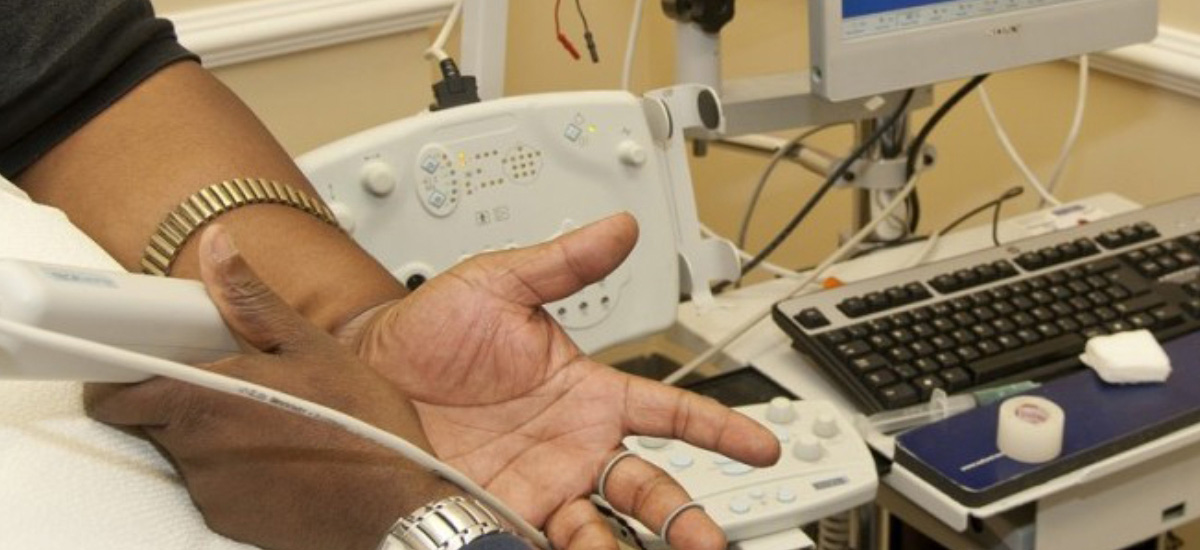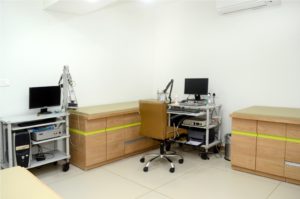
EMG Nerve Conduction Test
A nerve conduction study (NCS) is a diagnostic test, used for evaluation of the nerves’ function of the body. It is often called NCV, as the most common measurement during this study is Nerve Conduction Velocity (NCV).
NCS is often accompanied by EMG (ElectroMyoGraphy) examination; which is measurement of muscle function with a needle. It is also called NEE (Needle EMG Examination)
Concept
Nerve conduction study is performed by stimulating a peripheral nerve electrically and recording a response either from muscle (motor) or skin (sensory), supplied by the nerve. The main parameters to consider are amplitude of the response, latency of the initiation of the response and velocity across the nerve conduction.
EMG is done, using a small caliber needle put in the muscle with aseptic precaution and measuring electrical activity generated by muscle, at resting position and during action.
Digitally generated data from this study is recorded and interpreted in the clinical context by the neurologist.
Preparation/Technique
NCS: Patient is asked to lie on the table. The technician will attach small electrodes, on the skin. He may give you very brief, but repeated stimuli to the nerve. You will feel a twitching or small shock like sensation, which is mostly bearable. The test is not invasive, but can be painful due to the electrical shocks.

EMG: A small pin-sized needle, wired to the recording machine is inserted in the muscles being examined. No electrical stimuli or injections are given. It simply records muscle activity. The examiner may ask you to relax or contract the muscle. If you are relaxed, it would be easier.
Despite concerns, no immediate or delayed adverse effects have been reported with routine NCS, in patients with cardiac pacemakers or implantable cardiac defibrillators (ICDs).No known contraindications exist from performing needle EMG or NCS on pregnant patients. Continue your medications before the test; exceptions are blood thinner and medications for myasthenia gravis. Consult your physician first.
The only contraindication to this test is for patients with a bleeding disorder or lymphedema.
Use
The main reason to do NCS is evaluation of patients with sensory symptoms, like tingling, numbness, burning or other Parasthesiae, and/or weakness of any limb. This test helps to diagnose various conditions affecting spinal cord, root, nerve, muscle or neuromuscular junction.
Common disorders are:
- Carpal tunnel syndrome
- Peripheral neuropathy
- GBS (Guillaine Barre Syndrome)
- Myopathy or Muscular dystrophy
- Myasthenia Gravis
- Foot drop
- Brachial plexus injury
- Motor neuron disease
- Radiculopathy / root lesion (i.e. sciatica)
Our centre

Ansa Clinic is equipped with two best digital EMG/NCS machines. We also assure the experience and expertise of our neurologists, for performing and reporting all kinds of neurological disorders.
We also provide facility for portable NCS recording at any medical centre/hospital /ICU across the city of Ahmedabad.
In most of the case, we attempt to do reporting on the same day of procedure and the complete record is given to the patient.
